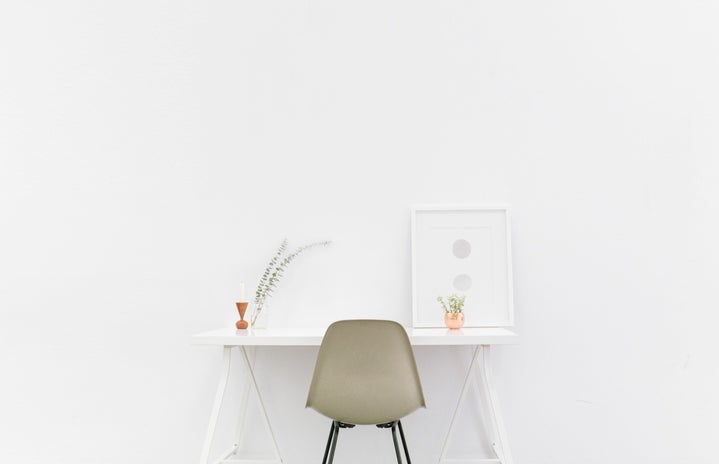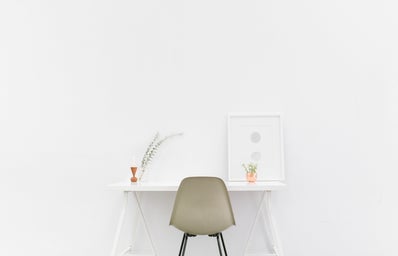Elise M. Boulding was right: “society has made us think happiness lies in having things and has failed to teach us the happiness of not having things.” If you’re anything like me, you own too many “things.” You have a closet bursting at the seams, three purses full of nonsense, hundreds of pens and highlighters, and more accessories than you know what to do with. While I’m not a minimalist myself, this particular lifestyle fascinates me. I admire those that can live simply yet contently.
In the early 1800s, transcendentalism induced a sweeping notion of simple living. Thoreau famously said, “the price of anything is the amount of life you exchange for it.” Authors such as himself and Emerson helped usher in the movement by challenging others to live creatively and thoughtfully. Throughout the following century, people began to deliberately slow down and enjoy small things. After the second World War, appeal for the aesthetic of minimalism developed into both a culture trend and arts movement. Notable female minimalist artists include Agnes Martin, Anne Truitt, Eva Hesse, and Vija Celmins.
Minimalism boasts of simplicity, embraces silence, celebrates love, and enjoys empty spaces. It is far much more than “just another trend.” This intentional lifestyle preaches that the less you own, the less that owns you. Less is always more. Sure, some of these concepts are an acquired taste; however, there’s something undeniably intriguing about this kind of life.
Characteristically, desiring little allows one to acquire life in its entirety. In order to experience reality more directly and fully, one must eliminate the unnecessary. This de-cluttering should happen in both our minds and physical spaces. Minimalism begs us to get rid of all the things that hinder us from fulfillment. The philosophy doesn’t necessarily say that we shouldn’t own anything; rather, nothing should own us. We should live with what we need and what we love. We should spend time doing things that actually matter to us.
In order to better understand these concepts, I decided to put some into practice by setting personal goals throughout quarantine. Those were as follows:
-Cut out people in my life that aren’t doing me any good -Clean out my closet and donate all un-needed items -Create more storage on my phone by deleting unnecessary files
Throughout the course of the summer, I felt a growing sense of contentment. As I let several physical things go, my mind began to rid itself of frustration and negativity. The less things I had to worry about, the more time I had to spend time with the people I love. Ultimately, here are the physical things I parted with:
-Communication ties with 3 toxic individuals -150 pieces of clothing and 20 pieces of jewelry (which filled up 7 recyclable bags!) -3,000 pictures, 100 videos, and 800 notes on my phone
I began to understand one simple thing: I don’t need to do anything, own anything, be anywhere, or be around anyone that I don’t love.


